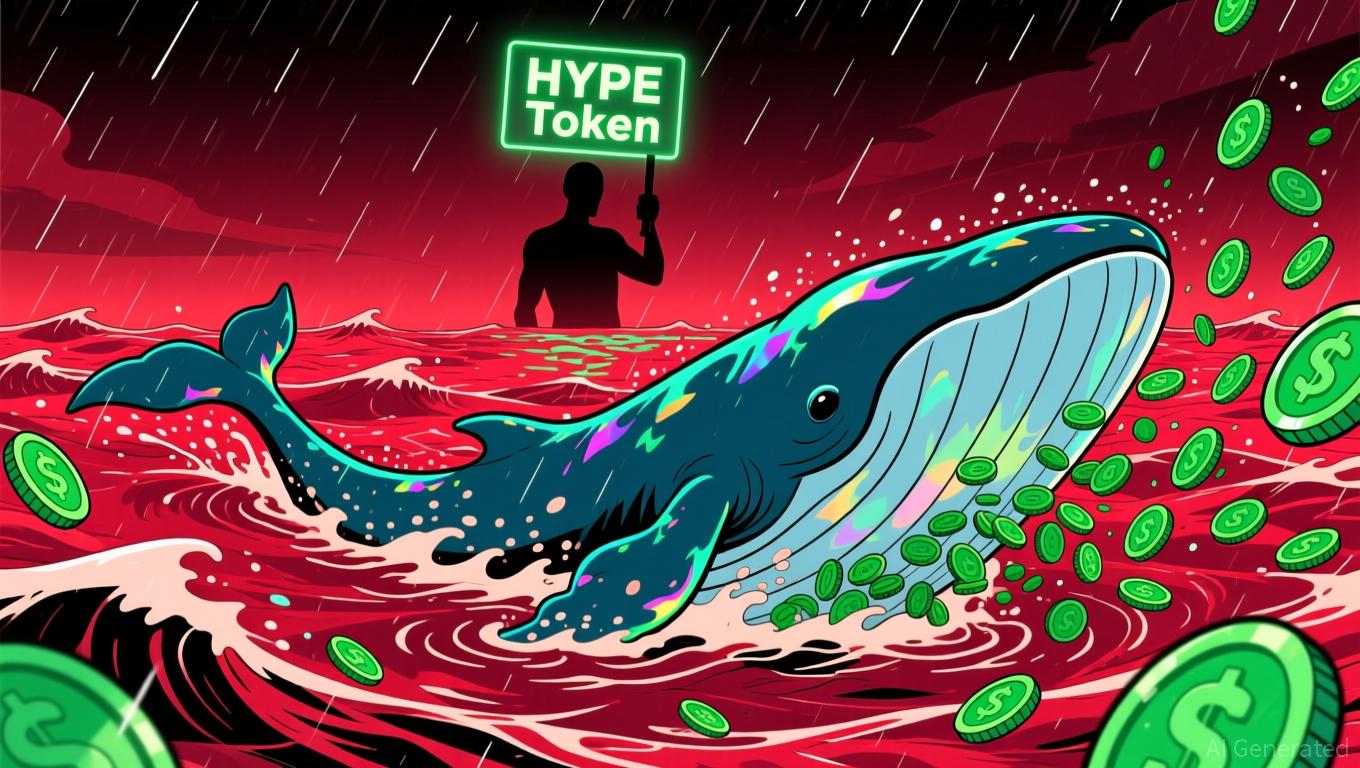MAHA's Struggle with Identity: Corporate Connections Versus Community Origins
- Robert F. Kennedy Jr.'s MAHA movement faces internal fractures as corporate partnerships and policy shifts alienate grassroots supporters. - Critics accuse the administration of abandoning anti-vaccine roots through $500M funding cuts and collaborations with biotech firms like Eli Lilly . - Former allies condemn MAHA's "identity crisis," while 67% public support persists despite warnings about coalition dilution from experts. - Kennedy defends pragmatic alliances as necessary for governance, but faces pr
Robert F. Kennedy Jr.'s "Make America Healthy Again" (MAHA) initiative, which once brought together anti-vaccine proponents and environmentalists, is now experiencing internal divisions due to conflicting goals and involvement with corporations. Grassroots members claim the leadership has abandoned its original mission, while Kennedy and his supporters argue that adapting to the realities of leadership is necessary to broaden the movement’s impact.
This discord became especially apparent this week as Kennedy was criticized by former supporters and dismissed staff. Gray Delany, who was removed from his position at the Department of Health and Human Services (HHS) in August, expressed on a podcast, "

The administration's balancing act has drawn further scrutiny.
Kennedy has sought to quell dissent, defending figures like White House Chief of Staff Susie Wiles and adviser Stefanie Spear against conspiracy theories suggesting they are undermining his agenda. "
Public support for MAHA remains robust, with two-thirds of Americans endorsing the initiative in a June Ipsos poll.
As MAHA navigates its identity crisis, Kennedy's ability to reconcile idealism with political pragmatism will determine whether the movement remains a force for change-or splinters into irrelevance.
Disclaimer: The content of this article solely reflects the author's opinion and does not represent the platform in any capacity. This article is not intended to serve as a reference for making investment decisions.
You may also like
Solana News Update: Dawn: Solana's Fast Track to International Financial Markets
- Wormhole Labs launched Sunrise, a Solana platform for instant token listings via NTT framework, bypassing wrapped tokens. - MON became first token listed on Nov 23, enabling immediate trading on Jupiter and Orb DEXs with native liquidity. - Platform addresses Solana DeFi's fragmented liquidity by standardizing cross-chain entry for new assets from day one. - Sunrise aims to expand beyond crypto to tokenized commodities and real-world assets, competing with Ethereum's DeFi dominance.

Hyperliquid News Today: Crypto Faces Widespread Challenges as Short Sellers Profit and Long Positions Suffer Amid Market Volatility
- HYPE whale 0x082 faces $10M unrealized loss after 126% price drop, raising pre-announcement trading suspicions. - Abraxas Capital liquidates $620K in HYPE shorts while BitMine reports $3.7B ETH unrealized loss amid compressed crypto premiums. - Hyperliquid's 0x5D2F nets $51M BTC short profits as 53.2% of platform positions favor bearish bets. - Robinhood's $1.27B Q3 revenue surge contrasts with $1.5B insider share sales and tokenized stock expansion into Europe. - Market fragility persists with declining

ICP Jumps 30% in a Week: What’s Fueling the Buzz and What Could Happen Next?
- ICP token surged 30% in 7 days amid whale accumulation and rising network adoption metrics. - Daily active addresses rose 35% while DEX volumes hit $843.5M, signaling growing decentralized computing utility. - Futures open interest reached $188M as retail optimism clashes with technical concerns below EMA-9 at $5.40. - Key resistance at $6.47 could trigger further gains if ICP sustains above $5.40, but leveraged positions pose correction risks.

Grayscale & Franklin Templeton XRP ETFs Go Live: What’s Next for XRPs Price?